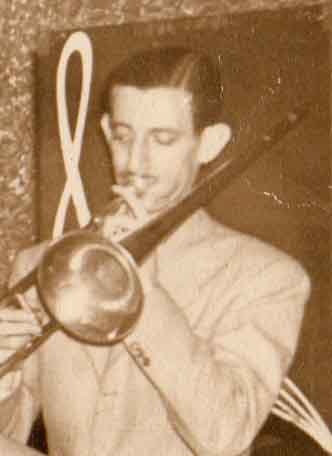
By Thelma Johnston Loika
Virgil Loika was born in Temesvár, Hungary, a city now known as Timișoara in Romania, on March 12, 1907, to Andrew and Victoria Loika. He was born late in life to his parents as his four brothers had already left home, and his only sister was several years older.
He recalled being at his grandparents’ home in Budapest at 5 years of age when his grandfather died and the Greek Orthodox Catholic Church performed rituals to accompany that event. He remembered the rites with a sense of horror.
World War I began in 1914 when he was 7. I don’t know his father’s occupation, but Andrew was inducted into the Hungarian Cavalry soon after. He, his mother and sister went to live with his grandmother in Budapest.
Virgil didn’t say when he began to play the violin – it seemed he always did – and he had a talent for languages. In Budapest, Virgil played with kids from several nations and cultures, many of them Jewish. He became adept in Yiddish and German, but mostly Yiddish – and Hungarian, of course.
His own family adhered to the Greek Orthodox faith but surely were not devout. And Virgil never told me about school or early education. A nearby bakery used him to make deliveries of various baked goods, and he was fascinated by their procedures.
Virgil’s sister, whom he never mentioned by name, seemed to have taken over the running of the household. Her disciplinary directions and measures became increasingly onerous. Finally, at age 11, Virgil ran away to his father. (I do not know Andrew’s post, but this would have been 1918.)
Andrew’s unit treated Virgil as a mascot and made up a makeshift uniform. Andrew must have been an officer, for he lived off-base in an apartment with a “girlfriend.” How long this lasted Virgil never said, but one day the girlfriend gave Virgil some money to “go away.”
He hitched and bummed his way to Odessa, a Russian port on the Black Sea. Virgil often heard his father’s glowing tales of his uncle’s life in Detroit in America, and now Virgil decided to find him and live with his uncle.
In Odessa, Virgil linked up with another boy, and the two of them stowed away on a ship bound for a port in Italy, from whence they managed to make their way to Rome and experienced Italian ices of several varieties.
Somehow, in Rome the two boys somehow separated. No matter how it happened, Virgil was alone when he boarded or stowed away on a train to Paris. Of course, he had the money his father’s mistress had given him, but how far could that go?
According to Virgil’s story, all of this happened when he was 11 – in 1918 – while America had entered World War I. Italy was a member of the Axis powers. I should think that getting from Rome to Paris would be quite a feat, and from Paris to LeHavre (France) where he stowed away on a ship to New York City just as unlikely. But who knows?
This is the story Virgil told me in 1943 – the one he always told to friends – and, as years went by, seemed supported by tidbits of related experiences. Yet, except for the chaos of World War I, such a tale seems farfetched.
After arriving at Ellis Island, he was apprehended and put on a ship back to Le Havre. Upon his return, he stowed away again and this time was discovered by a rabbi who took pity on Virgil and aided him with food and a means to escape detection.
Once again at Ellis Island, Virgil waited in a queue with disembarking passengers until a heavy-set Italian woman accompanying a herd of offspring was leaving the ship. He followed them discreetly as they passed inspectors, then called out and ran toward them, “Mama, Mama, wait for me!”
The customs officers let Virgil pass, whereupon the 11-year-old stowaway overcame Immigration and Naturalization’s obstacle to becoming an American.
[CONTINUED ON PART II]
I think you should work on a movie about your father/parents. Very interesting!